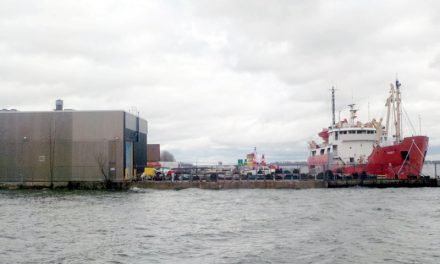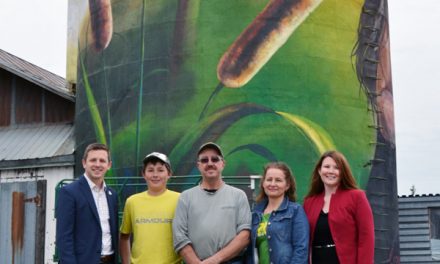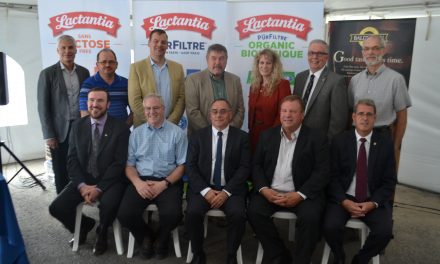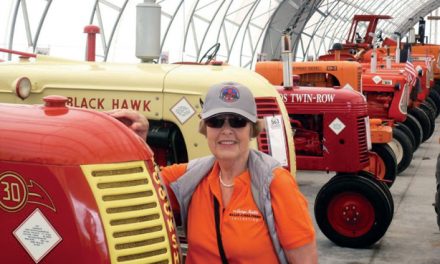By Terry Tinkess
AgriNews Staff Writer
In the constantly evolving landscape of modern agriculture, technological advancements continue to redesign traditional farming practices. Among the most notable advancements are self-driving farm machinery and artificial intelligence (AI) systems, which are gaining market share in Ontario’s agricultural sector. These cutting-edge technologies offer the potential of greater efficiency, increased productivity, and improved sustainability.
One of the significant advantages offered by self-driving farm machinery is its ability to enhance operational efficiency. Leading brands such as John Deere’s AutoTrac and Case IH’s AFS Connect provide farmers in Ontario with advanced navigation systems that automate tasks like planting, fertilizing, and harvesting. These self-driving machines utilize GPS technology, sensors, and sophisticated AI algorithms to navigate fields, maintain optimal spacing, and minimize overlap. As a result, farmers can reduce labour costs, increase precision, and cover larger areas in less time.
AI systems are also impacting Ontario agriculture by enabling precision farming techniques that optimize resource utilization and increase crop yields. Companies like FarmWise and Blue River Technology (now part of John Deere) have introduced AI-powered solutions that can identify and selectively treat weeds, pests, and diseases, reducing the need for indiscriminate pesticide application. This targeted approach minimizes environmental impact, improves crop health, and increases overall efficiency.
AI algorithms can also analyze vast amounts of data collected from sensors, drones, and satellites, providing farmers with valuable insights to make informed decisions regarding irrigation, fertilization, and other critical factors affecting crop growth.
Some Ontario farmers have been quick to adopt self-driving farm machinery and AI technologies across various agricultural sectors. For instance, in the dairy industry, robotic milking systems from brands like Lely and DeLaval have gained popularity. These automated systems can identify and milk cows without human intervention, reducing labour costs and providing real-time data on milk production and cow health.
Similarly, in the fruit and vegetable sector, autonomous harvesting machines such as the SmartAgro Harvester have proven effective in optimizing crop yield, reducing labour requirements, and minimizing harvest time.
While the potential benefits of self-driving farm machinery and AI in Ontario agriculture are undeniable, several hurdles hinder their widespread acceptance. One major concern is the initial investment required to adopt these technologies. High upfront costs associated with purchasing self-driving machinery and AI systems, as well as ongoing maintenance expenses, can be prohibitive for small-scale farmers.
One possible work-around to deal with the higher cost is through the development of an aftermarket product that can turn existing equipment into autonomous machines. Sabanto Inc. did just that, announcing in January 2023 the release of a Kubota M5 aftermarket autonomous system.
The new technology offers a new way of thinking about scaling. Instead of addressing labour constraints by purchasing larger machines, Sabanto’s technology allows farmers to use smaller, lighter equipment, resulting in less compaction and lower equipment costs.
“We are completely disrupting the way the industry views autonomous equipment, and we are bringing in partners who share our vision,” said Craig Rupp, Founder and CEO of Sabanto, in making the announcement. “We see a future of smaller, smarter, lighter, less expensive, and more sustainable swarms of autonomous equipment that will enable users to cover more ground with less.”
Regardless of the methodology, there will be a need for robust and reliable internet connectivity in rural areas poses a challenge for seamless data transmission and real-time monitoring. This also connects to another issue, that of data privacy, which will need to be addressed.
There is apprehension surrounding the implementation of AI in farming practices. Skepticism regarding data privacy, the impact on traditional farming communities, and the fear of job displacement among farm workers need to be addressed for broader acceptance of AI in agriculture. Moreover, farmers must be adequately trained to operate and troubleshoot these advanced technologies effectively.
The advent of self-driving farm machinery and AI systems has opened new horizons in Ontario agriculture, offering farmers unprecedented levels of efficiency, precision, and sustainability. With many name brands such as John Deere, Case IH, Lely, and DeLaval leading the way, farmers across various sectors can embrace these technologies to optimize their operations.
Addressing hurdles such as high upfront costs, connectivity challenges, and concerns surrounding AI implementation is crucial for the widespread adoption of these technologies. As Ontario’s agricultural landscape continues to change, the integration of self-driving machinery and AI promises a future of enhanced productivity and sustainable farming practices.












